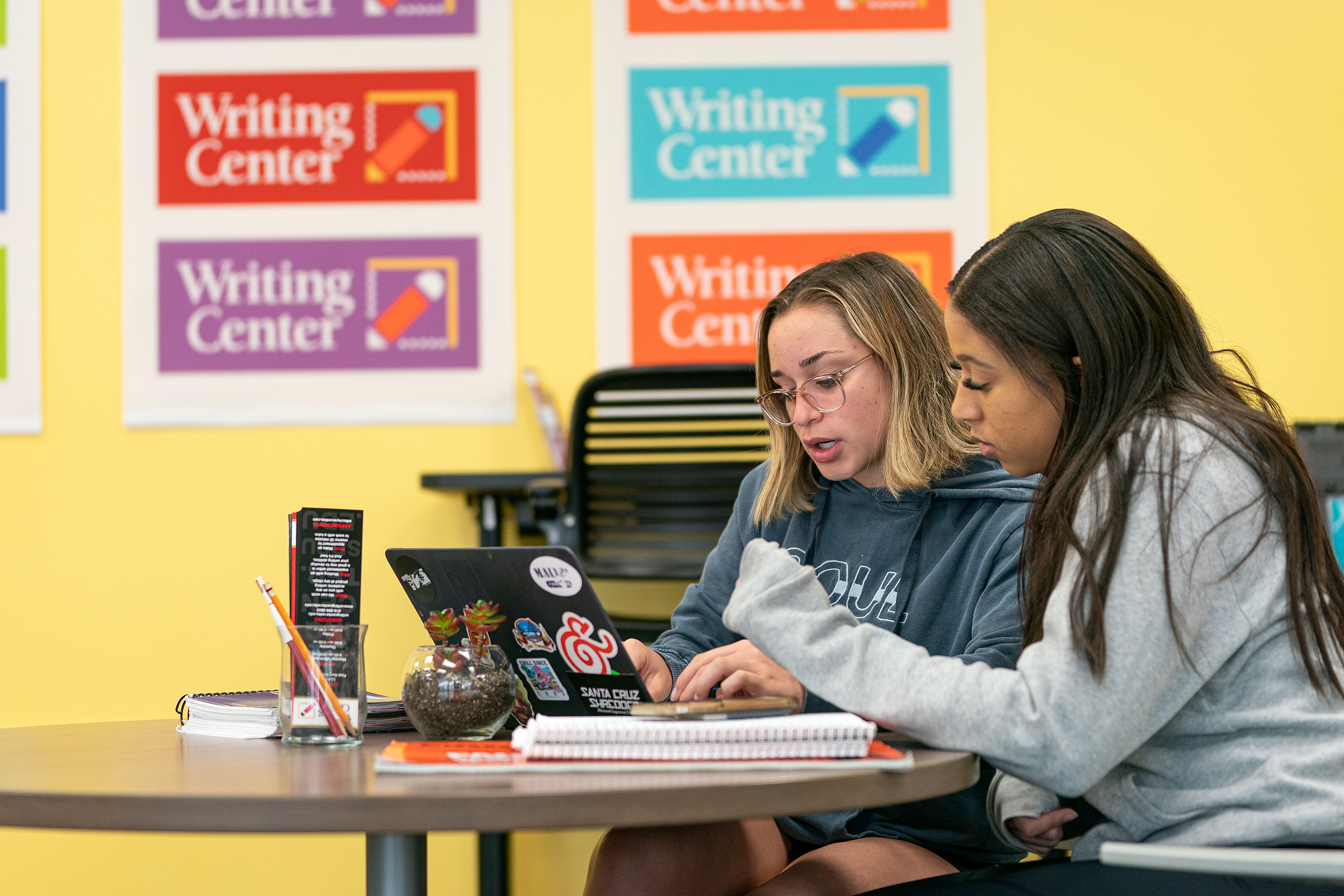General Studies
- AD-101A
- Monday-Friday
8:00 a.m. to 4:30 p.m. - 619-594-2209
- Fax: 619-594-2049
- [email protected]
First Year Seminar
The General Studies 100 University Seminar course is one component of a series of academic and student services programs designed to support your success as a first year student. This one unit course will support your transition to college life through a series of course activities and resources that allow you to examine your personal goals, determine if your need to sharpen your study skills and time management practices, and encourage you to reflect about some of the choices you have already made in terms of your major, career goals, and student activities. Ultimately, we want you to make the needed adjustments to successfully transition to this new stage of your personal and academic life.
GENS 100 is offered in three formats.
GENS 100 A - University Seminar: The “stand alone” seminar option for many first year students
GENS 100 B - Learning in Communities: This seminar option is linked with a G.E. or academic course such as Political Science 100, Economics 101, or Psychology 100. This co-enrolled approach allows students to build connections and community across multiple courses
GENS 100 C - Living Learning Communities: This seminar option is linked with a G.E. or academic course, a course in your major, and/or a theme or affinity-based learning community. These seminars are open to residential students (living on campus), and provides opportunities to build connections and relationships that go beyond academic courses through connection with residence hall floors or theme-based living experiences.
A number of students will be able to participate in other courses that are equivalents to the GENS 100 University Seminar. These options include Business Administration 100, Leadership 100, Engineering 101, Sciences 101, and General Studies 150. All of these courses have the same learning objectives to support your success, but are specially designed to support your achievements in your major or student identity center or the student services office you may be connected to such as the International Student Center for new students from abroad.
Student Learning Outcomes
For the Fall 2023 semester, you will review through Canvas (online course management system) the syllabus faculty have developed for each of your classes. Each syllabus has a number of similar features including student office hours, class reading schedule and dates for midterms and major assignments. You will also find a listing of specific skills, capacities, and subject matter content you will learn as part of each course; these will be listed as Student Learning Outcomes (SLOs).
In addition, many students participate in other courses using the GENS 100 core curriculum, such as Business Administration 100, ARPE Leadership 100, Engineering 101, Sciences 101, and General Studies 150. These courses share the same seminar learning outcomes, and are designed to support your achievements in your major, an identity center, or a student services office (e.g., International Student Center for new students from abroad).
Seminar Learning Outcomes for the First Year Seminar
- Self-Learning and Development: Explain how taking responsibility for self-learning and development by earning an academic degree is integral to the lives we would love living and the communities we would love to create and strengthen
- Leadership: Identify our leadership style and cultural strengths and explain how they are relevant
to the vision we have for the lives we would love living and the communities we would
love to create and strengthen
Help Seeking: Describe the importance of the role of the academic advisor(s), student success coaches, and other academic and student support mentors to my academic success and identify two strategies for leveraging the expertise of the people in those roles - Academic Success Strategies: Explain how we have implemented six academic success skills (reading comprehension, note-taking, activity management (aka time management), academic honesty, credible source identification, and test preparation) into our day-to-day SDSU living
- University Engagement: Describe how we our engaging academically, socially, and responsibly with the SDSU community and the resources (e.g., academic advisors, mentors if applicable, Writing Center, Math Center, Calpulli, Health Promotions, etc.) it offers is integral to our being able to live the lives we would love living
- Well-Being: Identify well-being strategies that can reduce the natural stress and anxiety that emerges during transitions and when learning new strategies in a new learning environment.
Student Testimonials
“I think the best thing about this course if that the First Year Seminar was about providing a smooth transition to college. College can be very intimidating, but this seminar allowed me to find a good balance between school, studying, and socializing and having fun”
- Fall 2022 FYS Student
“Lots of group activities and I was able to meet new people who are now good friends!”
- Fall 2022 FYS Student
“The best thing about the First Year Seminar was having in class discussions. As a
newly freshman in college, I found it helpful learning more about the resources available
in SDSU.”
- Fall 2022 FYS Student
“I think the First Year Seminar allows students who usually don’t think about their life/oneself to do so and to make sure students are on track with their education.”
- Fall 2022 FYS Student
